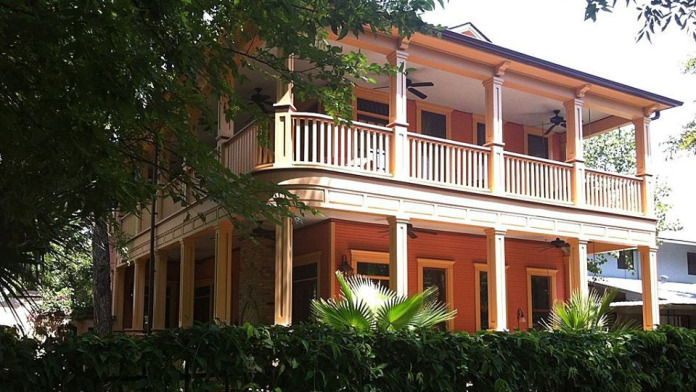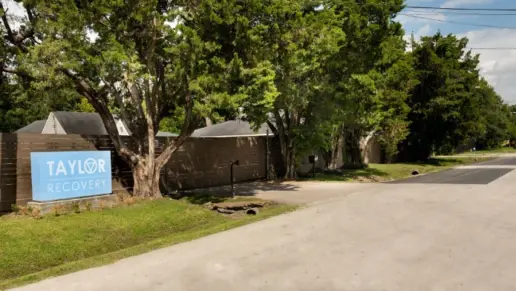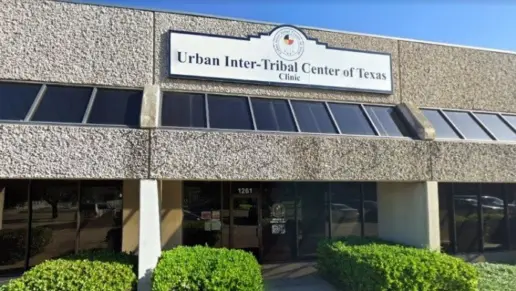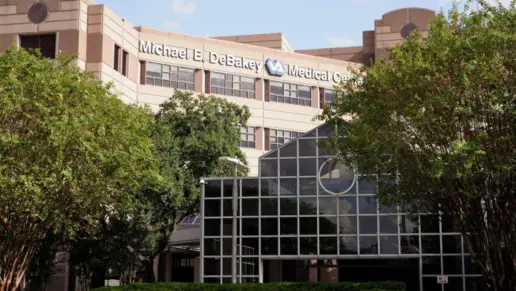About The Arbor – Extended Care Men
Austin State Hospital is located in Austin, Texas, and offers dedicated programs to adolescents, children, young adults, adults, and seniors who are struggling with mental health and drug addiction. This facility offers inpatient rehab and aftercare to those who are admitted to the hospital.
Inpatient rehab allows the client to live in a hospital-like setting while they focus on recovery. Some use inpatient rehab on a short-term basis of a few days to several weeks while others stay for months. Individual and group therapy is typically used as treatment methods and some facilities offer medical detox.
Aftercare is provided to those who have completed their inpatient program. Resources such as sober housing, program referrals, and peer support groups.
Austin State Hospital accepts a majority of insurance plans and pays options. Commonly used insurance providers include Humana, Beacon, Anthem, ComPsych, Magellan Health, and Kaiser Permanente. Some additional providers include Aetna, Amerigroup, United Healthcare, Ambetter, BlueCross/BlueShield, and Cigna. Those with out-of-network benefits are advised to contact their providers to verify their coverage.
Latest Reviews
Rehab Score
Gallery

Location
Accepted Insurance
Other Forms of Payment
Private insurance refers to any kind of healthcare coverage that isn't from the state or federal government. This includes individual and family plans offered by an employer or purchased from the Insurance Marketplace. Every plan will have different requirements and out of pocket costs so be sure to get the full details before you start treatment.
Self-pay involves paying for treatment out of your own pocket. You can use savings or credit, get a personal loan, or receive help from family and friends to fund your treatment. If you don't have insurance or your insurance plan doesn't cover a specific program, self-pay can help ensure you still get the care you need.
Financial aid can take many forms. Centers may have grants or scholarships available to clients who meet eligibility requirements. Programs that receive SAMHSA grants may have financial aid available for those who need treatment as well. Grants and scholarships can help you pai for treatment without having to repay.
Addiction Treatments
Levels of Care
Treatments
The goal of treatment for alcoholism is abstinence. Those with poor social support, poor motivation, or psychiatric disorders tend to relapse within a few years of treatment. For these people, success is measured by longer periods of abstinence, reduced use of alcohol, better health, and improved social functioning. Recovery and Maintenance are usually based on 12 step programs and AA meetings.
During rehab in Texas, you'll deal with underlying issues that contribute to addiction. By addressing these challenges and learning healthy ways to cope with them, you'll develop strategies that help you live a drug-free lifestyle.
It is common for those suffering from addiction to also have other mental disorders. These individuals suffer from a dual diagnosis. In many cases, individuals have been abusing alcohol, drugs or both in order to medicate the symptoms of other co-occurring disorders. They utilize several strategies to treat clients with co-occurring disorders including pharmacotherapies, mindfulness meditation, nutrition, exercise, yoga, equine therapy (Natural Lifemanship), EMDR, Cognitive-Behavioral, and 12-step recovery.
Opioid rehabs specialize in supporting those recovering from opioid addiction. They treat those suffering from addiction to illegal opioids like heroin, as well as prescription drugs like oxycodone. These centers typically combine both physical as well as mental and emotional support to help stop addiction. Physical support often includes medical detox and subsequent medical support (including medication), and mental support includes in-depth therapy to address the underlying causes of addiction.
Substance rehabs focus on helping individuals recover from substance abuse, including alcohol and drug addiction (both illegal and prescription drugs). They often include the opportunity to engage in both individual as well as group therapy.
Programs


Clinical Services
Cognitive Behavioral Therapy (CBT) is a therapy modality that focuses on the relationship between one's thoughts, feelings, and behaviors. It is used to establish and allow for healthy responses to thoughts and feelings (instead of unhealthy responses, like using drugs or alcohol). CBT has been proven effective for recovering addicts of all kinds, and is used to strengthen a patient's own self-awareness and ability to self-regulate. CBT allows individuals to monitor their own emotional state, become more adept at communicating with others, and manage stress without needing to engage in substance abuse.
EMDR is a therapeutic modality originally developed to help process trauma. In an EMDR session, a patient is prompted to undergo eye movements that mimic those of REM sleep. This is accomplished by watching a therapist's finger move back and forth across, or following a bar of light. The goal is repetitive sets of eye movements that help the brain reprocess memory, which can significantly reduce the intensity of remembered traumatic incidents. Associated memories can heal simultaneously, leaving patients significantly calmer, more stable, and more emotionally relaxed.
The Arbor Family Program is designed to address the needs of the family of the alcoholic/drug addict as they navigate the path to sobriety and healthy living. It is not uncommon for there to be a complete breakdown of communication between the suffering addict and their family. Their family program helps bridge this gap and get the entire family moving towards a healthy direction. Their Family Program is a combination of educational and therapeutic modalities. It is a three and a half day intensive program offered monthly, and is ideal for family members, partners, and significant others affected by addiction. It is lead and directed by masters-level clinicians, and is an experiential program which includes equine assisted therapy, group interaction, individual sessions and other therapeutic activities.
Group therapy is any therapeutic work that happens in a group (not one-on-one). There are a number of different group therapy modalities, including support groups, experiential therapy, psycho-education, and more. Group therapy involves treatment as well as processing interaction between group members.
In individual therapy, a patient meets one-on-one with a trained psychologist or counselor. Therapy is a pivotal part of effective substance abuse treatment, as it often covers root causes of addiction, including challenges faced by the patient in their social, family, and work/school life.
In considering the many aspects of life that suffer during active alcoholism and addiction, life skills are an important aspect that are often neglected. While this term can seem a bit broad, life skills can be defined as any psychological, social, or interpersonal skill that is important. The fact that many of these skills must be relearned, or even taught from scratch, can be one of the most overwhelming aspects of recovery, and therefore has become one of the key focuses of Arbor Extended Care. All house managers are certified as Peer Recovery Support Specialists, have undergone intensive training, and have successfully navigated this journey themselves. They are properly armed with the necessary tools to mentor residents on these important skills.
The disease of addiction takes it toll on the individual’s mind, spirit, relationships and body. The journey to sobriety is a journey towards good health. The effects of nutrition and a healthy diet on the body is well known. What is often not considered is that proper nutrition is an important part of the healing process of addiction treatment. Clients in their residential programs eat on site and are taught about nutrition and food preparation. Special dietary needs, such as allergies, can be accommodated. Meals are prepared for residents of The Arbor men’s and women’s programs. Each meal is balanced for nutrition, healing properties and taste.
Trauma therapy addresses traumatic incidents from a client's past that are likely affecting their present-day experience. Trauma is often one of the primary triggers and potential causes of addiction, and can stem from child sexual abuse, domestic violence, having a parent with a mental illness, losing one or both parents at a young age, teenage or adult sexual assault, or any number of other factors. The purpose of trauma therapy is to allow a patient to process trauma and move through and past it, with the help of trained and compassionate mental health professionals.
Amenities
-
Residential Setting
-
Private Setting
Accreditations

The Commission on Accreditation of Rehabilitation Facilities (CARF) is a non-profit organization that specifically accredits rehab organizations. Founded in 1966, CARF's, mission is to help service providers like rehab facilities maintain high standards of care.
CARF Accreditation: Yes
Contact Information
4304 Avenue B
Austin, TX 78751













